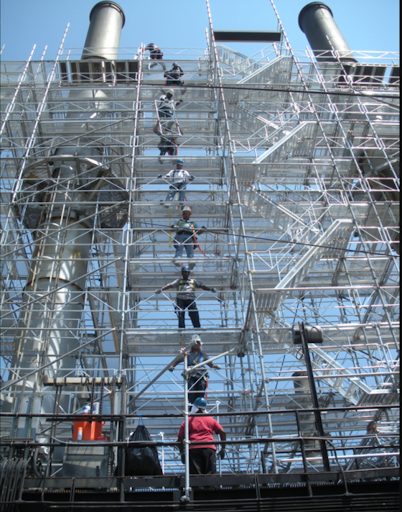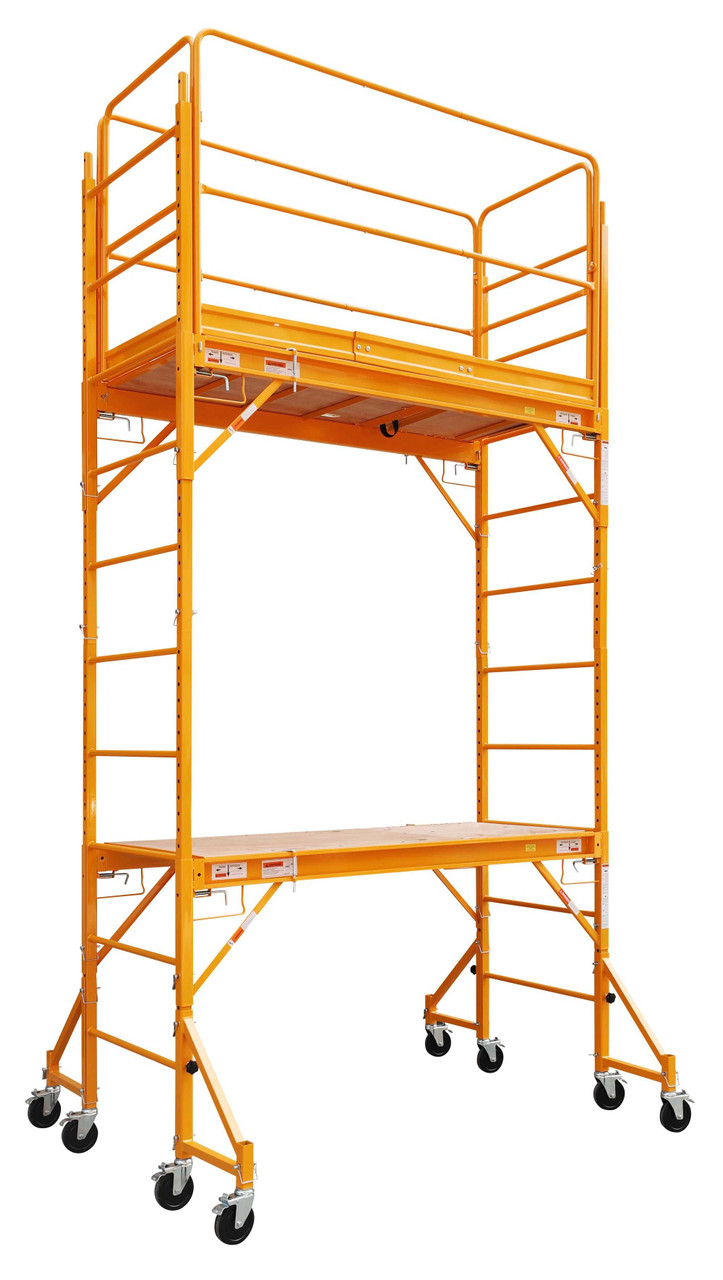Discovering the Various Kinds Of Scaffolding Utilized in Building Jobs
The building industry counts greatly on various kinds of scaffolding to fulfill details project requirements, each offering distinct benefits and applications. Standard frame scaffolding offers a sturdy foundation for general jobs, while put on hold scaffolding is crucial for job on skyscraper frameworks. Other choices, such as system and rolling scaffolding, accommodate efficiency and movement, specifically. In addition, the cantilever variant proves important in city environments where room is constricted. Recognizing the subtleties of these scaffolding kinds is vital for enhancing security and efficiency on building sites, prompting a more detailed examination of their distinct features and applications.

Traditional Structure Scaffolding
Typical framework scaffolding is among the most widely used techniques in the building industry because of its robustness and flexibility. This system contains upright and straight frames that are set up to develop a steady system for employees and materials. The primary parts include vertical posts, horizontal journals, and diagonal dental braces, which together supply a strong framework that can support significant tons.
Among the crucial benefits of traditional frame scaffolding is its adaptability to different building jobs, varying from household structures to huge industrial structures. The modular style enables for simple assembly and disassembly, making it reliable for both long-lasting and short-term jobs. In addition, the system can be customized in height and size, fitting various structure layouts and website conditions.
Safety and security is vital in scaffolding applications, and conventional framework systems are geared up with guardrails and toe boards to avoid falls and make certain employee protection. Routine examinations and adherence to safety laws are important in maintaining the integrity of the scaffold (Scaffolding). Overall, typical structure scaffolding continues to be an essential option in the building and construction sector, giving a trustworthy platform for labor and improving overall task effectiveness

Suspended Scaffolding
Put on hold scaffolding offers an one-of-a-kind service for building projects that require accessibility to raised surfaces, especially in circumstances where standard frame scaffolding might be not practical. This kind of scaffolding is usually put on hold from the roof or top degrees of a framework, making use of a system of platforms, sheaves, and ropes to develop a functioning space that can be adapted to various elevations.
One of the key advantages of put on hold scaffolding is its adaptability. It can be easily rearranged or lowered to accommodate adjustments in building needs, making it excellent for jobs such as home window installment, façade work, and maintenance on skyscrapers. In addition, the very little footprint of put on hold scaffolding permits better use of ground room in urban environments, where space is often limited.
Security is an essential factor to consider in the usage of suspended scaffolding. Generally, suspended scaffolding offers a efficient and reliable remedy for accessing hard-to-reach areas in various construction scenarios, enhancing both efficiency and safety on site.
System Scaffolding
System scaffolding, frequently pertained to as a contemporary option in the scaffolding market, is composed of pre-engineered parts that can be swiftly set up and adapted for various construction jobs. Scaffolding. This sort of scaffolding is identified by its modular design, which permits for convenience scaffolder death and efficiency on task websites, suiting various heights and structural requirements
Normally made from high-strength steel or light weight aluminum, system scaffolding provides enhanced durability and stability. The components include upright messages, straight journals, and diagonal dental braces, which interconnect safely, making certain a robust structure. The style usually incorporates standard fittings, simplifying setting up and disassembly procedures, thereby reducing labor time and prices.

Rolling Scaffolding
Moving scaffolding is a versatile alternative to typical fixed scaffolding, designed for mobility and convenience of usage on building sites. This kind of scaffolding contains a system sustained by frames with wheels, permitting employees to quickly transfer it as required. The movement attribute considerably enhances performance, as it decreases downtime related to constructing and taking apart fixed scaffolding.
Typically constructed from lightweight products such as light weight aluminum or steel, rolling scaffolding uses a tough yet mobile solution for jobs calling for regular repositioning - Scaffolding. It is particularly advantageous in jobs such as paint, drywall installation, and electrical job, where access to numerous heights and areas is essential
Safety is critical in rolling scaffolding layout, with features such as securing wheels to avoid unexpected motion when in use, and guardrails to secure scaffolder cis workers from drops. In addition, several models are adjustable in elevation, fitting numerous project demands.
Cantilever Scaffolding

The design of cantilever scaffolding usually involves using arms or brackets anchored to a structure or framework, making it possible for the system to expand outward securely. Safety and security is extremely important; hence, these scaffolds must be crafted to endure various tons and ecological problems. Normal examination and maintenance are necessary to ensure structural stability and worker safety.
Cantilever scaffolding is preferred for its versatility and effective use area, making it a popular selection in urban settings where room restraints are typical. Furthermore, it promotes easier accessibility to high elevations, eventually adding to the overall performance of building tasks. As with all scaffolding types, appropriate training and adherence to safety criteria are critical for employees utilizing cantilever scaffolding.
Conclusion
Typical framework scaffolding supplies security, while suspended scaffolding uses versatility for elevated tasks. System scaffolding assists in quick assembly, and rolling scaffolding improves mobility for differing work settings.
Typical structure scaffolding supplies a strong foundation for general tasks, while put on hold scaffolding is necessary for work on skyscraper structures.Rolling scaffolding is a functional alternative to typical set scaffolding, scaffolder hiring made for wheelchair and simplicity of usage on building and construction sites. As with all scaffolding kinds, proper training and adherence to safety and security criteria are vital for employees making use of cantilever scaffolding.
Traditional structure scaffolding provides security, while put on hold scaffolding offers flexibility for elevated jobs. System scaffolding assists in quick setting up, and rolling scaffolding boosts mobility for differing work atmospheres.